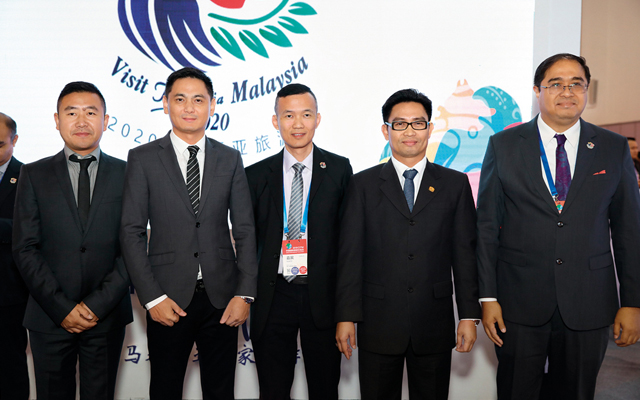In line with its Visit Malaysia 2020 tourism campaign, Malaysia will next year roll out a host of initiatives and efforts to strengthen ties with China, as 2020 marks the 45th year of economic and cultural cooperation between both nations.
To commemorate this milestone, the Malaysian government has declared 2020 the Malaysia-China Culture and Tourism Year, shared Faizal Shani, consul general of Malaysia in Kunming.

“As part of this programme, we will support tourism traffic between Malaysia and China. The Consulate General of Malaysia in Kunming will provide services especially to the Kunming and Yunnan market,” he told TTG Asia at the China International Travel Mart (CITM) in Kunming last week.
At CITM 2019, which marked the start of its China-oriented efforts, the Malaysia Tourism Promotion Board (MTPB) joined hands with local tour operators to promote unique experiences offering deeper engagement for Chinese tourists.
One such experience includes a stay on a durian farm, where guests can hear durians drop from trees in the night and follow a guide to enjoy the freshly-picked fruit. The experience includes a detailed telling of the different types of durians and their distinctive tastes.
“We’re seeing less of the large group tours. Instead, the Chinese are now travelling in smaller groups of friends and family, and planning their own itineraries. We believe that such experiences would appeal to these travellers,” explained Chan Hon Mun, deputy director, international promotion division Asia/Africa, MTPB.
In order to cater to this segment, MTPB has also been stepping up efforts to encourage local hotels and merchants to accept mobile payment methods such as WeChat Pay and AliPay, as well as advising tour operators to sell their packages on popular Chinese OTA sites like Trip.com, said Chan.
The Malaysian government has also relaxed its visa requirements for Chinese tourists, such that travellers with a China passport transiting in Thailand, Indonesia or Singapore can now enjoy a visa on arrival.
Shenzhen Airlines will commence flights between Penang and Shenzhen on December 18, joining the current roster of 232 Malaysia-China routes by seven airlines.
Faizal added that the efforts to deepen the bond between Malaysia and China extend beyond tourism, with the Malaysian government having introduced a four-year Bahasa Malaysia culture and language programme for Chinese students.
Meanwhile, the Malaysian travel trade was quick to leverage the Visit Malaysia 2020 campaign to woo more Chinese travellers, particularly the FIT segment, by promoting the country as a value-for-money destination.
Seeing strong potential for further growth from China, currently Malaysia’s top medium-haul market, Uzaidi Udanis, president at Malaysian Inbound Travel Association said: “Our travel counterparts in China mainly focus on group travel which is low yield, but FIT travel is already a strong force.”
With Thailand’s Phuket, Samui and Pattaya posing strong competition in pursuit of the Chinese FIT market, Uzaida is encouraging association members to promote more islands and beach resort packages to the Chinese market.
And Ally Bhoonee, executive director at World Avenues, has responded to the call. He said: “We have come up with new packages in Penang, Kota Kinabalu and Langkawi in conjunction with the year-long Visit Malaysia 2020 campaign. We are focusing on the beaches, islands and multicultural aspects in Malaysia.”
Inbound players also opined that the strong Thai baht makes hotel rates in Malaysia, in comparison, even more affordable.
Commented Bhoonee: “Targeting the middle class from Southern China, we have informed our partners that hotel rates in Malaysia are very competitively priced and value for money. Now would be a good time for repeat visitors to Thailand to try a new destination.”
Raaj Navaratnaa, general manager, New Asia Holidays Tours & Travel, shared: “We have segmentised the market to appeal to Chinese FIT millennials looking for soft adventure, educational tourism, or lifestyle travel.
“By doing so, we hope to show them aspects of a holiday they are interested in and woo them away from Thailand, which all this while remains a preferred destination.”
“We’re seeing less of the large group tours. Instead, the Chinese are now travelling in smaller groups of friends and family, and planning their own FIT itineraries.”
– Additional reporting by S Puvaneswary




















